Member Directory,
1847 - 1922
Henry L. Stimson
Lawyer/U.S. Secretary of State/U.S. Secretary of War
Centurion, 1893–1950
Charles L. Atterbury and Henry E. Howland
New York (Manhattan), New York
Huntington, New York
Age twenty-six
Laurel Hollow, New York
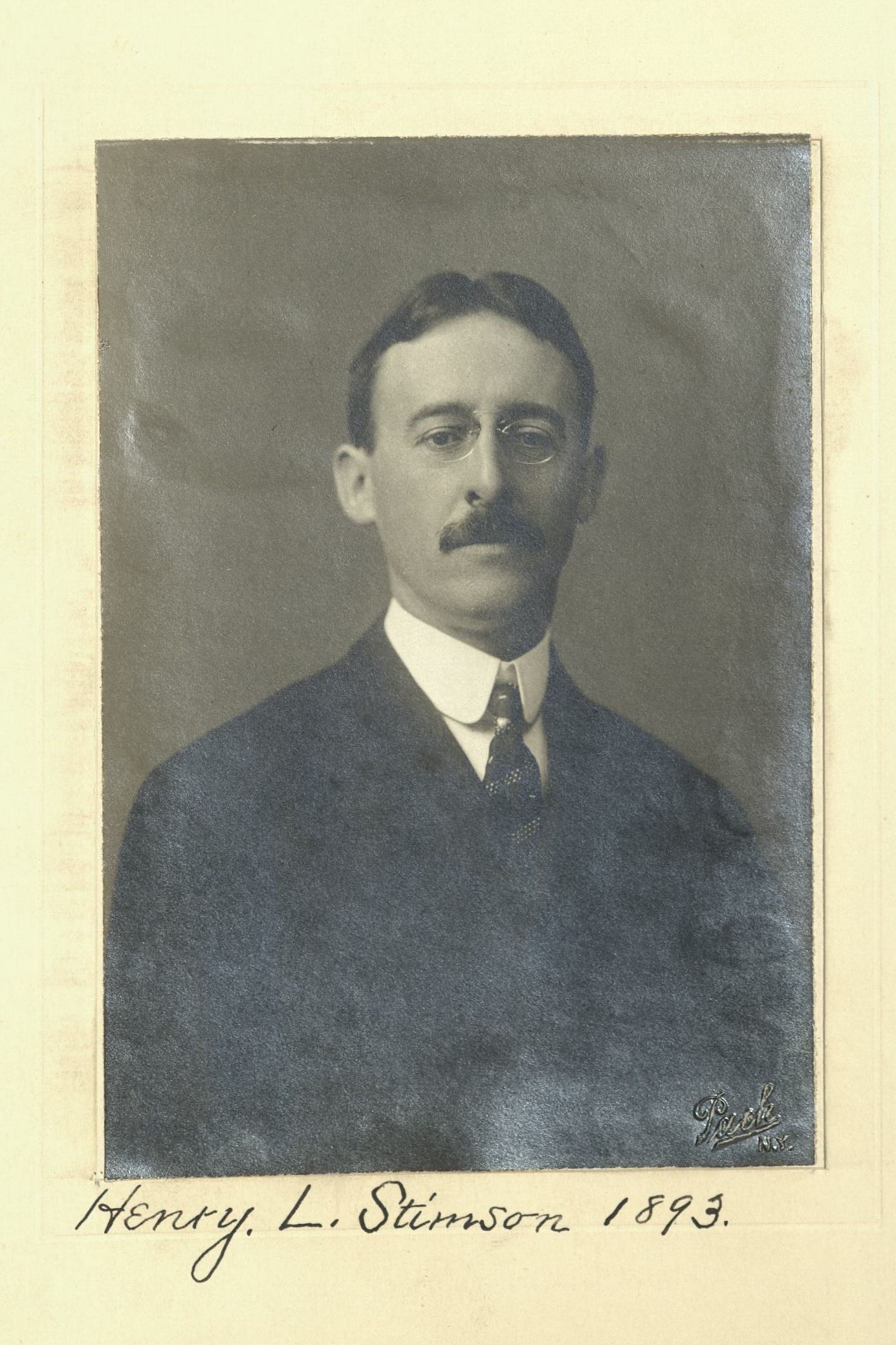
Archivist’s Notes
Designated an honorary member in 1949.Son of Lewis A. Stimson; nephew of Henry A. Stimson; cousin of Philip Moen Stimson.
Available Digital Resources
Henry L. Stimson: Addresses Made in His Honor at the Club House, April 6, 1950
Designated an honorary member in 1949; to commemorate this award, a series of addresses were delivered at the clubhouse on April 6, 1950, by Paul Manship, Harvey H. Bundy, Dwight D. Eisenhower, and John W. Davis, which were subsequently published as Henry L. Stimson: Addresses Made in His Honor at the Club House, April 6, 1950. A portrait of Stimson by Eugene E. Speicher was also unveiled on that occasion.
Century Memorial
Henry L. Stimson came of pure New England stock, save for a dash of Huguenot blood through a great-grandmother, a Boudinot; but he was a true New Yorker, for his grandparents on both sides left Massachusetts and came to New York shortly after the Revolution. Three happy years in Andover at the Phillips Academy, four years in Yale and two in the Harvard Law School, he then came home to New York. Shortly after his admission to the Bar in 1891 he entered the office of Elihu Root as a law clerk, together with his lifelong friend and partner Bronson Winthrop. He enlisted as a private in the Spanish American War, and rose to the rank of Lieutenant. In the First World War he served at the front as Colonel in command of a regiment of field artillery.
He cast his first Presidential vote for Grover Cleveland in 1892. The revelations by the Lexow Committee of Tammany corruption led him to join the Republican Party.
In December, 1905, he was appointed by Theodore Roosevelt United States Attorney for the Southern District of New York. The President had come to know him in the Boone and Crockett Club of New York. They were both big game hunters; and it was said of Stimson that he was the only member who had stalked a grizzly alone. Stimson at once showed his executive ability. He gathered about him a staff of young lawyers, the pick of the best law offices in the City, and he completely reorganized the office. It was a period when the railroads and Big Business corporations were indulging in unlawful rebates, and Stimson prosecuted them with vigor and success as he did the American Sugar Refining Company in the 17 Holes case for customs frauds.
The only elective office for which he ever stood was the Governorship of New York in 1910. It was Theodore Roosevelt who persuaded him to accept the nomination. He was defeated by John A. Dix.
In 1911 he became Secretary of War under President Taft.
In 1927 by appointment of President Coolidge he went to Nicaragua, then engaged in a bitter civil war, put an end to the Revolution, brought about a fair election, and established a liberal Government. In 1928 he was Governor General of the Philippines.
From 1929 to 1933 he was Secretary of State under President Hoover.
In September, 1931, while Stimson was serving his last year as Secretary of State, the Japanese began their aggressions in South Manchuria in violation of the Kellogg-Briand Pact, the Nine Power Treaty, and the Covenant of the League of Nations. Stimson did everything within his power to persuade the other Nations and the League of Nations, of which the United States was not a member, to protest this flagrant breach of international obligation, and, if he could have gained the support of the British Foreign Office and the President, it might have prevented the Second World War, and its direful consequences.
When President Roosevelt telephoned to Stimson inviting him to become once more Secretary of War he was almost seventy-three years old, but he did not hesitate. The opposition of Republican Senators to his confirmation—which was not based on his qualifications, but on the ground that he was lending aid and comfort to their political enemies—came to naught. His statement before the Senate Committee was frank and clear. He did not sympathize with all of the President’s domestic policies, but he entered the Cabinet completely free. He selected his assistants without regard to Party. Robert P. Patterson and John J. McCloy and Robert Lovett became his chief assistants. The President told Stimson he counted on him to be a stabilizing influence in the Cabinet, and this he certainly was. His relations with Roosevelt were always of the friendliest, but he was forthright and firm. A story will illustrate his attitude. After a Cabinet meeting, the President asked several members their opinion on a problem he had to deal with. When he asked Stimson his opinion, Stimson said: “I have no opinion.”
“Yes, but your off-hand opinion?”
“I have no off-hand opinion. Let me think it over, and I will give you my opinion tomorrow.”
It was Stimson who first urged that the High Command should be given to an American; it was he who opposed successfully the plan to make Germany a rural country; it was he who assumed, or had thrust upon him, the responsibility for using the atomic bomb.
No statesman in our history has surpassed him in integrity and selfless devotion to his country, and no civilian in any country rendered greater service in the Second World War than Stimson, except Churchill and Roosevelt.
No picture of Stimson would be complete without reference to his wife, whom he married in 1883, and to whom he dedicated his memoirs in these words: “To M.W.S. whose love and care have made possible both the life and this account of it.”
George W. Martin
1951/1952 Century Association Yearbook
Related Members
Member Directory Home-
 Charles L. AtterburyLawyerCenturion, 1887–1914
Charles L. AtterburyLawyerCenturion, 1887–1914 -
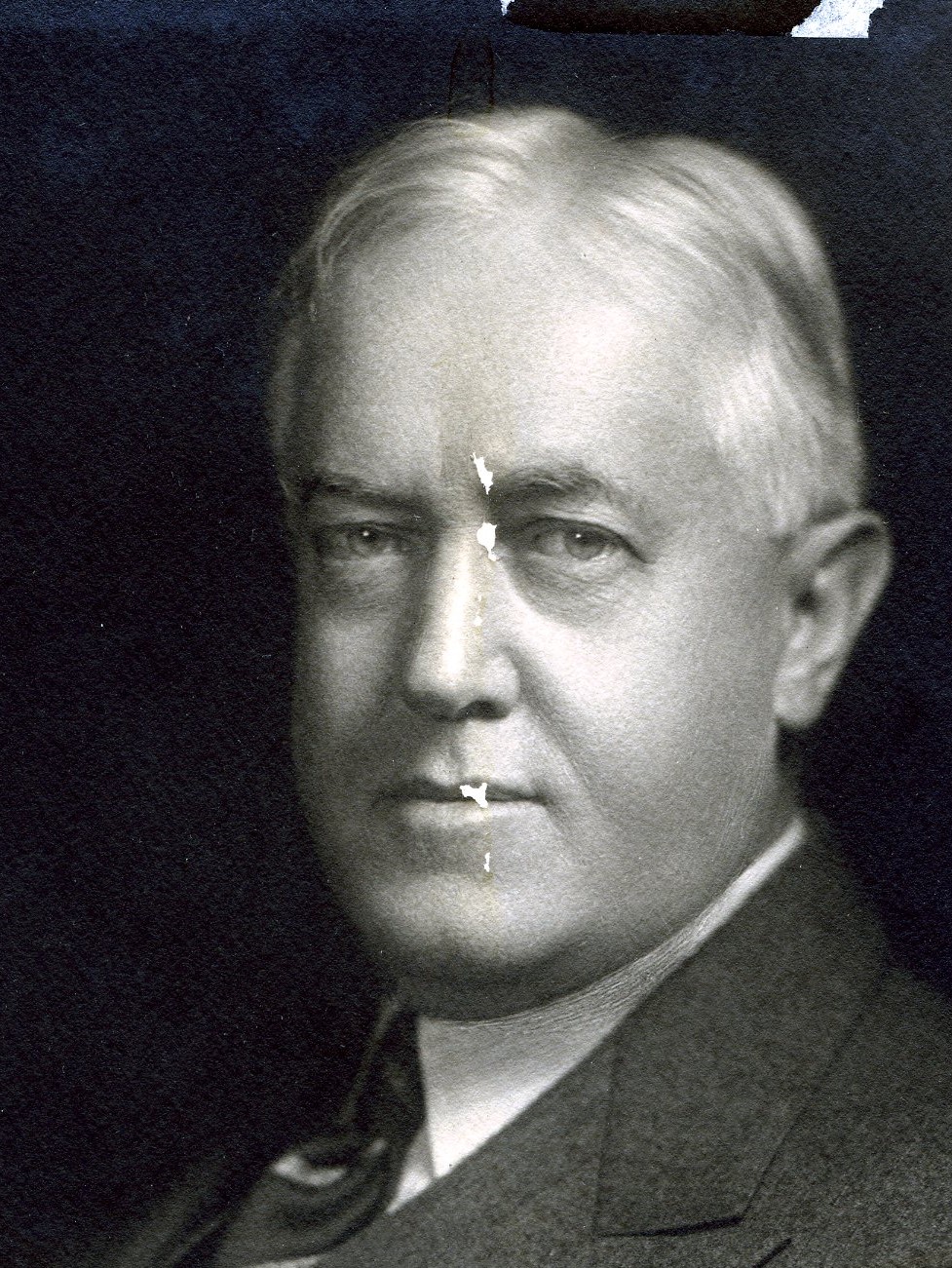 John W. DavisAmbassador/LawyerCenturion, 1921–1955
John W. DavisAmbassador/LawyerCenturion, 1921–1955 -
 Henry E. HowlandJudgeCenturion, 1873–1913
Henry E. HowlandJudgeCenturion, 1873–1913 -
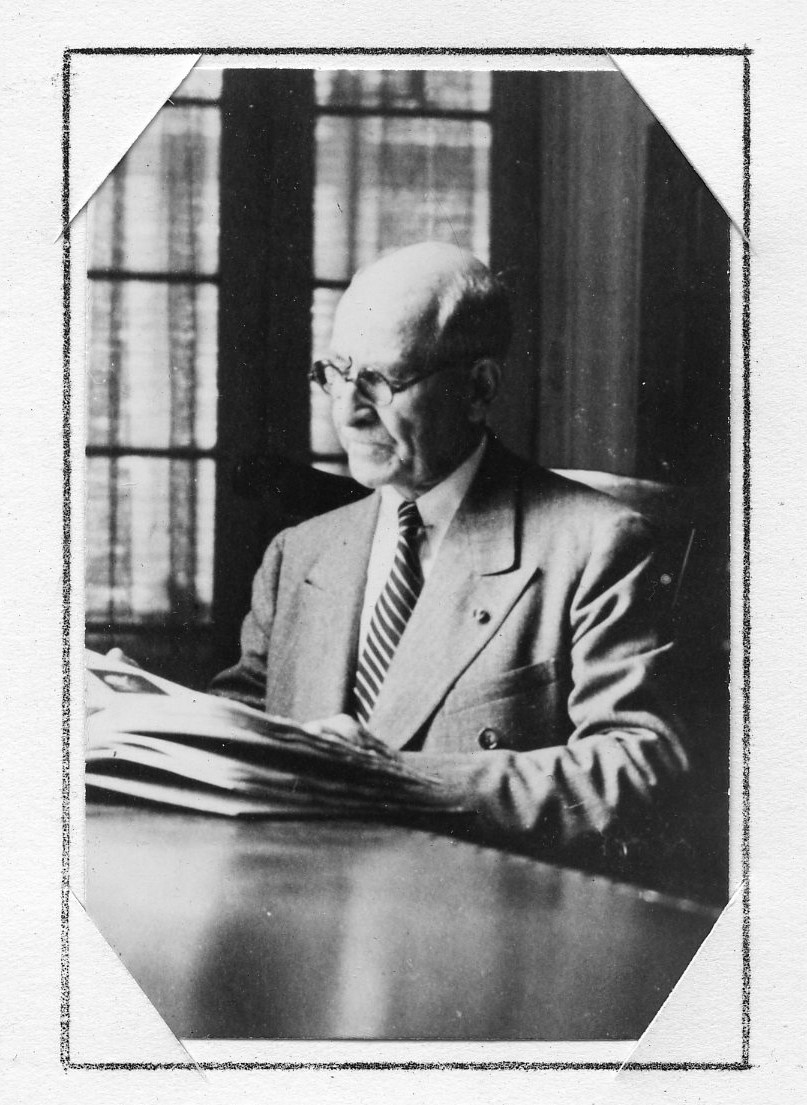 Frederick Hill MeserveEngineer/CollectorCenturion, 1922–1962
Frederick Hill MeserveEngineer/CollectorCenturion, 1922–1962 -
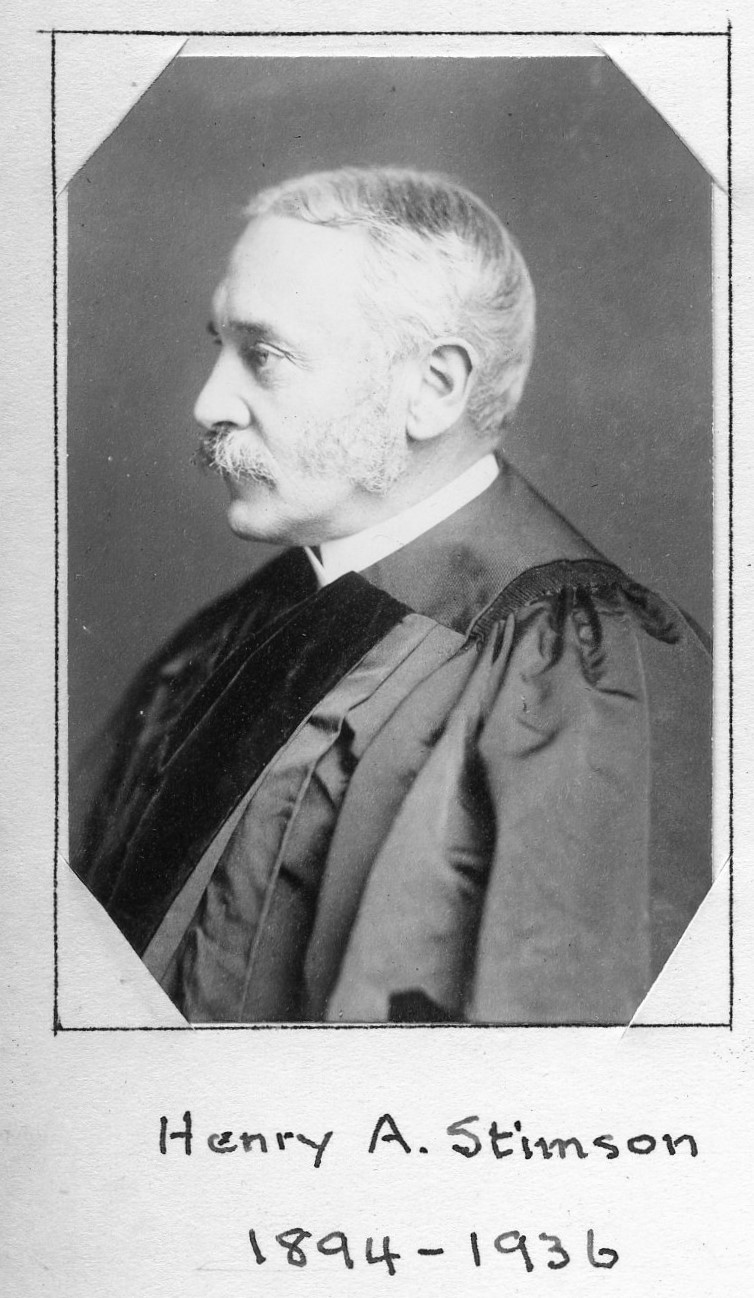 Henry A. StimsonClergymanCenturion, 1894–1936
Henry A. StimsonClergymanCenturion, 1894–1936 -
 Lewis A. StimsonPhysicianCenturion, 1884–1917
Lewis A. StimsonPhysicianCenturion, 1884–1917 -
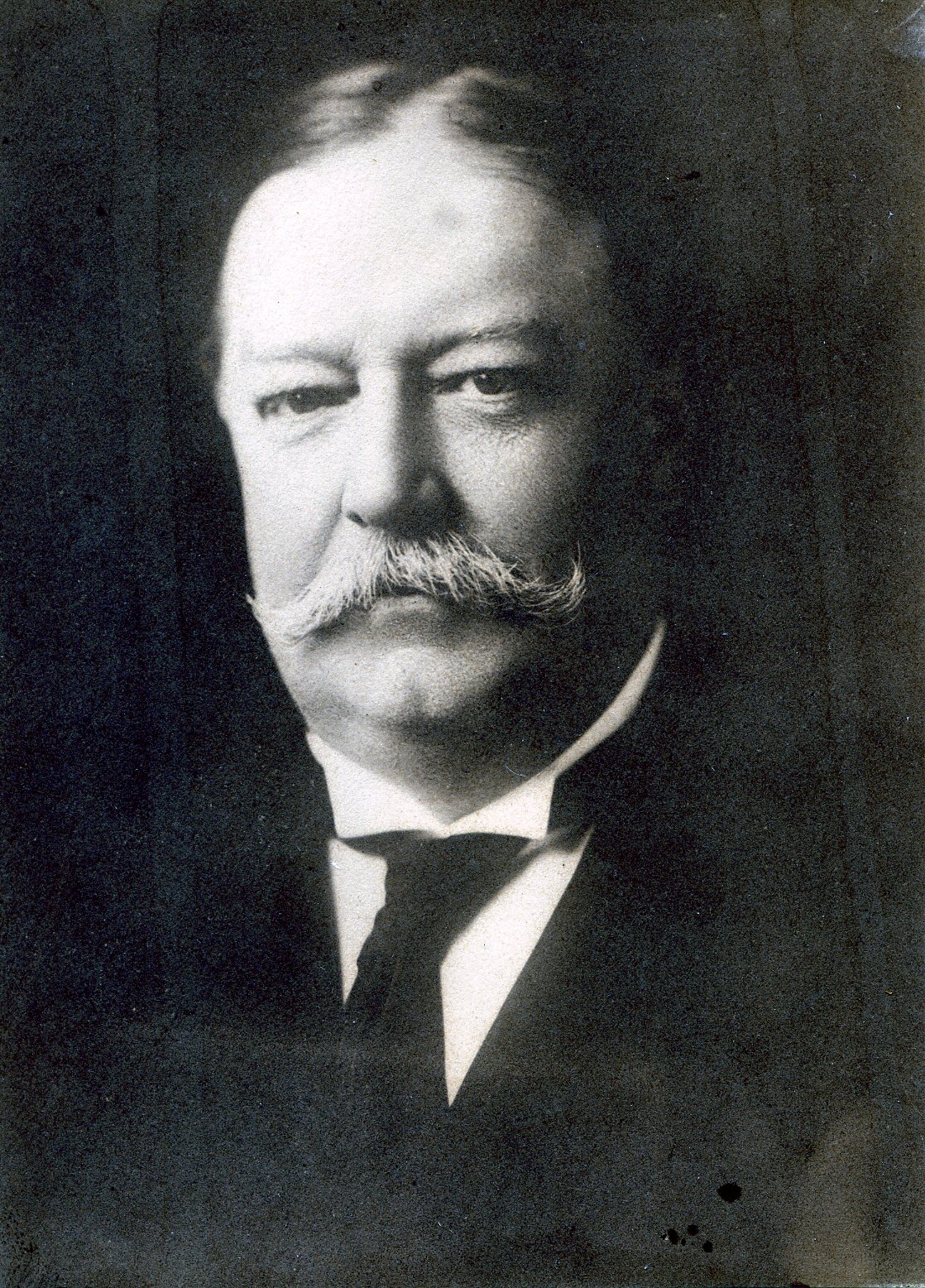 William Howard TaftProfessor, Yale University/U.S. President/Chief Justice of the United StatesCenturion, 1913–1930
William Howard TaftProfessor, Yale University/U.S. President/Chief Justice of the United StatesCenturion, 1913–1930 -
 Bronson WinthropLawyerCenturion, 1908–1944
Bronson WinthropLawyerCenturion, 1908–1944




